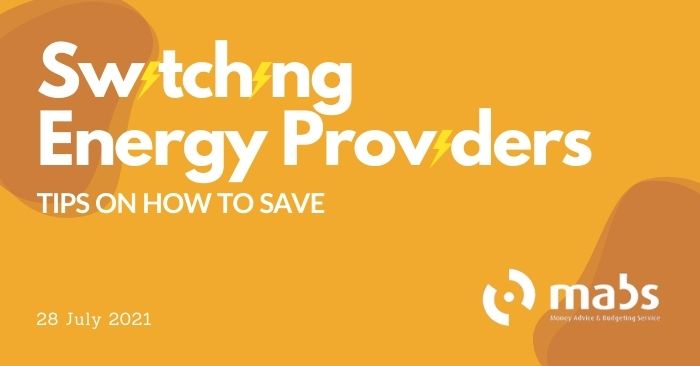Switching Energy Providers – Tips on How to Save

At the moment we are experiencing a surge in energy prices, making the cost of living more difficult. Instead of price freezes, we are hearing about huge price increases across electricity and gas and it doesn’t look like they’re going to stop anytime soon. So there is no better time to switch. We are all encouraged to switch providers regularly to make savings where we can. However, a recent report published by the Commission for Regulation of Utilities (CRU) shows that Irish customers aren’t switching to make these savings.
The question is, why?
Switching does not have to be complicated, but it takes a little know-how and some time to research. It will become second nature once you’ve gone through the process.
So, we’ve done the hard part and listed out what you need to do to get started, consider, and switch your energy providers.
Get prepared!
- Gather your electricity and gas bills (depending on when your contract renewal is, you may be able to switch both together).
- For gas, locate your GPRN on the bill; for electricity you’ll be looking for your MPRN.
- It’s helpful but not essential to locate your annual usage on your bill – this will make your estimates of savings more accurate. If you can’t find the annual usage, then simply multiply your monthly usage by 12 months. It’s important to know that this will be an average estimate and not reflect higher costs in some months.
- Know your Eircode; this might already be on your bill but if it’s not, look it up on the Eircode finder. It will help your utility provider locate your house.
- If you’re going to sign up for a direct debit, have your bank details (IBAN and BIC) to hand.
Make Decisions
Great, now you’re ready to start looking for the best deal:
- Decide if you want to go for a “dual fuel” option – this means you have one provider for both gas and electricity.
- Decide if you want a bundle with a smart heating package (if you don’t have one) or free gifts.
Be sure to…
- Check when your contract is due for renewal. If it’s not you may incur “exit fees” for breaking the contract – this is around €50 so still might be worth switching. These may make it cheaper to move at the end of your contract (so make a note in your calendar or set a reminder on your phone!)
- Make note of how long the discount is for and how long the contract is for, when looking at deals. If they are different lengths of time, check what rate you’ll be moved to after the discount period.
- Search online to see how much you’re really saving, if there are “gifts” included, such as a smart heating system or a smart speaker. Often these are thrown in as a “freebie”, but you can end up paying for them in a higher rate on the tariff.
- Avail of “smart tariffs” (meaning you can opt to use energy at cheaper times of the day), if you have a smart meter. You can find out more from ESB Networks Ireland about smart meters.
- Check if level pay is an option. With utility bills, you usually get a bill every two months. Some utility providers offer monthly payments or “level pay”. This means you can budget each month rather than paying every two months. Beware, the amount you pay each month under level pay might increase at times of the year where energy use is higher so that your account stays in credit. Your energy provider will notify you if your amount is due to increase.
Now that you’ve got everything together and know what to consider and what options suit you, it’s time to search for the best deal! Here are some price comparison websites to help make the switch easier.
Comparison websites
If you’ve switched your energy provider and want to save more, be sure to check out our tips on everyday energy saving, routine checks and how to invest now to save more in the long run. If you’ve switched and are still finding your bills very high, you can call the MABS National Helpline on 0818 07 2000, Monday to Friday, from 9am to 8pm, WhatsApp 086 035 3141 or find the contact details for your local office.
Stay tuned for next week’s blog on another way to save you some money – TV/Broadband packages!
Disclaimer: This blog does not represent legal guidance and is intended for guidance only. This blog is intended to assist you in making your own decisions, and we will never suggest you use one provider over another.
Updated: 21/03/2022




Facebook
twitter
Instagram